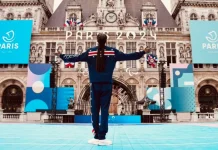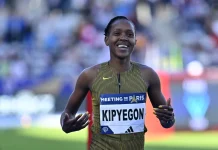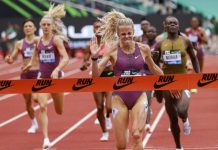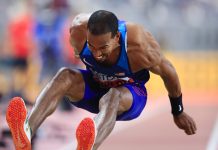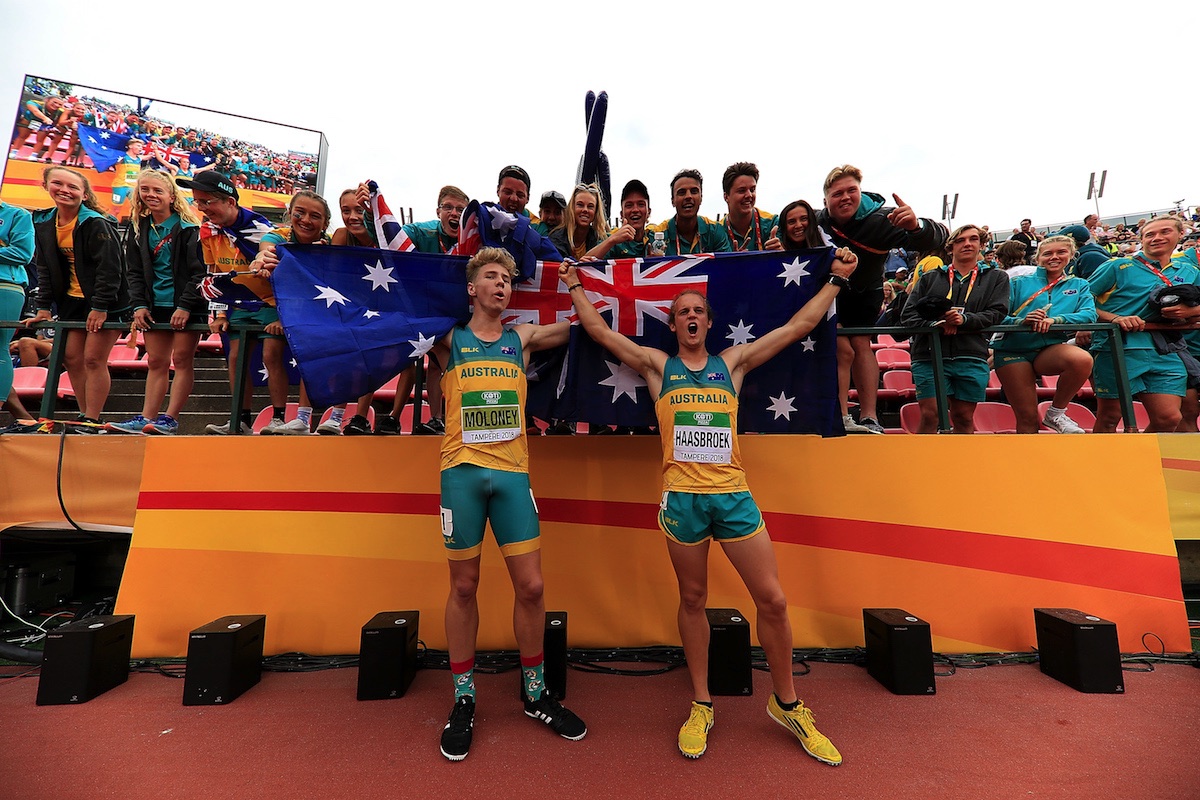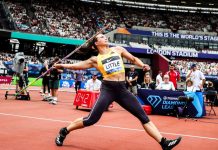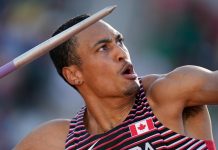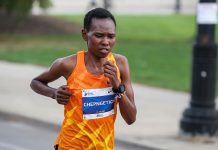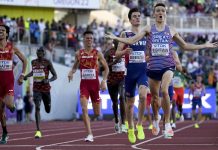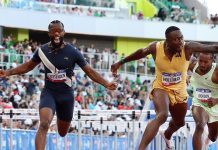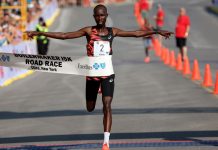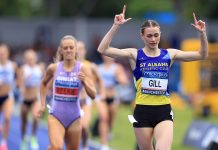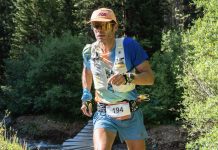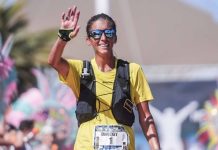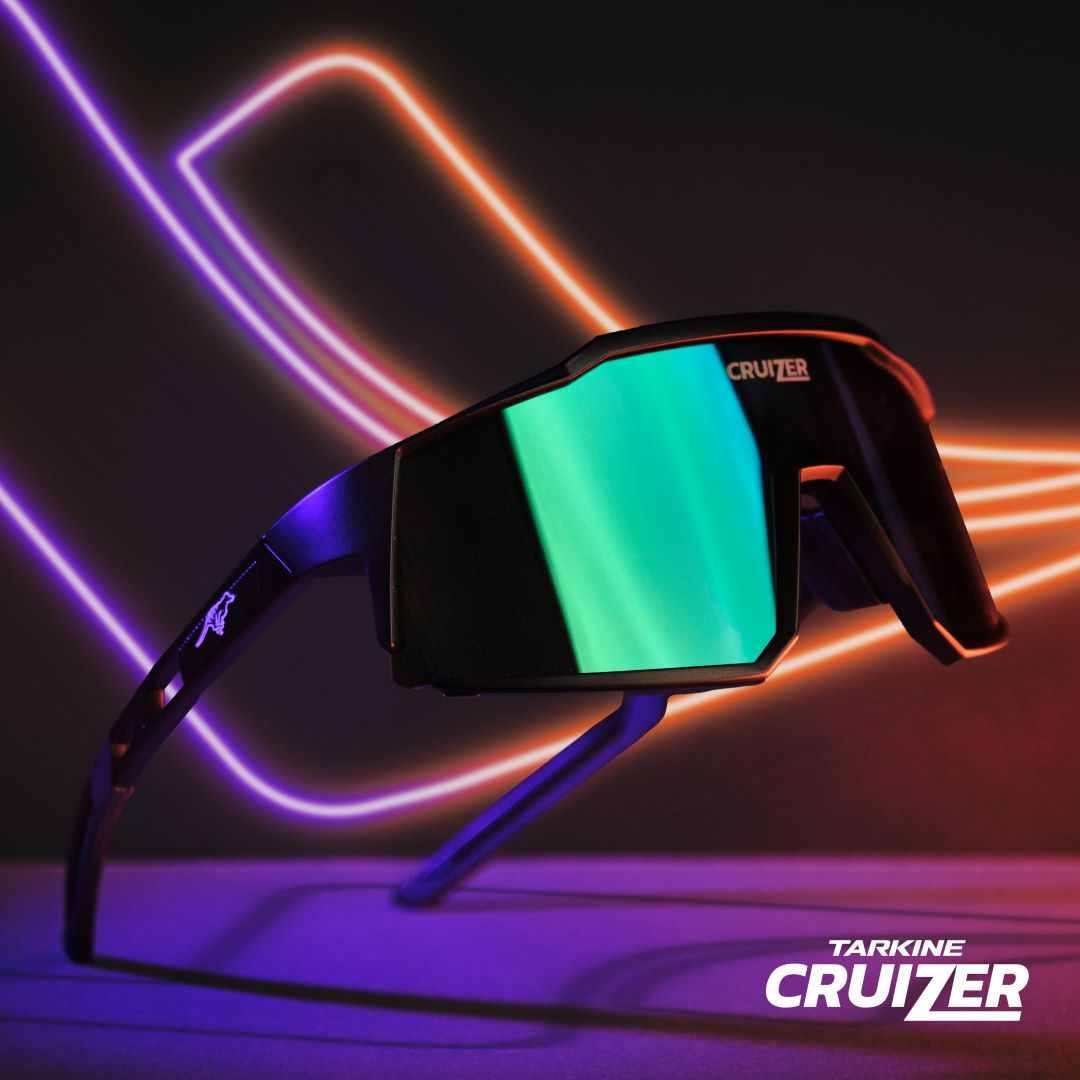History was made in the decathlon at the World Under 20 Championships in Tampere, Finland, when Australia went one-two, the first occasion at a global (able-bodied) competition for nearly 50 years. Ashley Moloney (QLD) wrote his name into the record books with an outstanding win in the decathlon with a score of 8190 points.
In the process, the Eric Brown-coached athlete added 450 points to his personal best, broke the championships record, the Australian U20 record and his own squad record, held by Cedric Dubler.
Moloney’s performance was also the second best score in world under 20 history. In second place, Gary Haasbroek (VIC), also raised his personal best to 7798 points, to make it a perfect result for Australia.
The last time two Australians stood atop the dais together was when Maureen Caird and Pam Kilborn won gold and silver at the 1968 Mexico Olympics in the 80m hurdles.
Moloney was ecstatic with his win saying “I”m feeling a rollercoaster of emotions, I was not expecting the performance – I just tried to do my best in every single event but not caring about the end result as much.”
On paper, both were medal prospects, but while the favourites fell by the wayside, the two Australians went from strength to strength throughout the gruelling two-day 10-event test.
Following a nervy long jump on day one, Ash Moloney was unstoppable going to new lifetime levels. In the high jump he improved seven centimetres and then in the 400m he dipped below 47 seconds for the first time.
“The high jump was the highlight – I did a huge PB.”
His 100m and 400m times would have seen him progress to the semi-finals in the individual events.
He started day two with a comfortable 216 point lead. After a solid effort in the hurdles with best decathlon time of 14.13, Moloney erupted in the discus. While under pressure from the decathlon world leader, Russian Stepan Kekin, who threw a large personal best, Moloney responded with his own two metre lifetime best throw.
That seemed to be the trademark of Moloney – nothing was going to stop him and if pressured he could raise the stakes. Just two vaults were needed in the the pole vault, before yet another personal best, this time looking a mere mortal as he “only” equalled his best ever standard of 4.60m.
Weighing up risk over reward, the 18-year-old made a mature decision to withdraw from any more heights, owing to a manageable knee problem which during the pole vault had flared up.
In the penultimate event, the pre-Tampere 48-metre javelin thrower, was onsong from the outset as ne nailed his opening throw, for, you guessed it, another personal best by more than 5 metres, sending the spear out to 53.67m.
With that sort of prelude, the final event of the competition was not going to disappoint, as the youngster closed out his history-making effort with an eight second best in the 1500m.
And Australia’s newest record-setter had plans to commemorate the occasion in a very decathlete/Finnish kind-of way “I’m going to celebrate by eating so much food and a sauna sounds fantastic!”
The youngster had great company throughout the event, with teammate Haasbroek compiling a consistent series of his own and saying “it means a lot to me to have Gary by my side.”
Haasbroek had earlier set a high jump personal best of his own on day one, while the other four events were just below his best. After a good start in the hurdles on day two he also set a personal best in the javelin. But he fell short in the pole vault. A 4.80m vaulter, he cleared his opening height of 4.30m smoothly before surprisingly exiting the competition at 4.50m. His hope of a medal was now in danger, but he rallied with a five metre javelin personal best, before bringing the event to a conclusion with a solid 1500m.
Haasbroek reflected “It feels so awesome to have two Australians in the top two – we wanted that, it’s a huge step for us and the decathlon event. My coach (Steve Cain) really helped me today – he knows me better than I do. I want to thank him for all of his programme. The crowd has been magnificent, they have given me a lot of support here. 100%, I will celebrate by sleeping because I’m exhausted! I’m going to finish my season now and next year, I’ll move to the USA for college.
In this competitive global meet, where medals are hard to secure, two was a real bonus for Australia. They seemed to be relaxed throughout the competition with Moloney even posting on Athletics Australia’s facebook shortly before he lined up in the 1500m.
Switzerland’s Simon Ehammer also had a personal best score of 7642 points for bronze.
Mazza-Downie and Crouch get top 10 in 3000m
The women’s 3000m was a fascinating and fast final with Australians Amelia Mazza-Downie (VIC) and Lara Crouch (QLD) stepping up to the challenge with lifetime best performances and top-10 finishes.
The Japanese duo of Nozomi Tanaka and Yuna Wada pushed the pace from the start and had a 40m gap on the field after one-kilometre. After two kilometres they had extended this to 50m when the two Ethiopians and a Kenyan responded. Crouch and Mazza-Downie were prominent at the front of the main pack.
The Ethiopians left their run too late and Tanaka hung on for Japans’s first gold in this event in 8:54.01 with Meselu Berhe (8:56.39) and Tsige Gebresalama (8:59.20) claiming the minor medals.
Mazza-Downie, 18, finished strongly for sixth place (9:09.19) and 16-year-old Crouch was very impressive in tenth (9:16.28). The first 13 athletes all ran personal bests.
Only Susie Power (VIC) with silver in 1994 has finished higher than Mazza-Downie in this event for Australia at the World U20s.
Connolly finding form with semi-final win
Ella Connolly (QLD) ran superbly to take the win in semi-final three of the 400m, in a season’s best 52.78 seconds.
She went out hard from lane 4 and was the clear leader at 200m. Entering the straight with a seven metre lead, the Queenslander maintained her form to the line for the win by 0.2 seconds from Mary Moraa (KEN).
The run built on Connolly’s strong heat win from yesterday, which was a season’s best of 52.99s. Her personal best of 52.72 was run when she won silver at the 2017 Commonwealth Youth Games.
“Making the final was my main goal so I’m absolutely ecstatic!” Connolly said. “There’s a lot of 52-second runners so I just need to stay relaxed. Everyone wants to compete in the world junior final. I’m just going to give it my all.”
As was the case in the heats, the stand-out was Indian Hima Das who won her semi-final in 52.10. Romanian Andrea Miklos was second behind Das (52.48) and is the second fastest qualifier for the final.
Connolly’s semi-final win was the 3rd fastest time from the three semis and she has drawn lane five for the final tomorrow evening with Das and Miklos drawing lanes to her inside.
Thomas at her best to sail through to 800m final
Carley Thomas NSW was outstanding in the semi-finals of the 800m with a commanding performance to win her way through Friday morning’s final (AEST). Just 17 years old, Thomas showed maturity beyond her years as she ran with confidence to hold off her challengers before crossing first in a new personal best 2:03.19 and consolidate her position as the fourth-fastest U20 in Australian history.
The Penny Gilles-coached runner was pleased with her tactical ability “I just wanted to go with whatever moves people made.” as she slashed 0.47s from her best set in December 2017.
“I was trying to look in my peripheral vision to see if anyone was coming up and I thought it’s now or never.” said Thomas.
Teammate Jemima Russell VIC also ran gallantly to trim her lifetime best to 2.04.81 to finish 5th in the second semi but it wasn’t enough to progress
Thomas goes into the final as the fourth-fastest qualifier behind the Ethiopian duo of Diribe Welteji and Fireweyni Hailu who recorded the scintillating times of 2:01.89 and 2:01.96 respectively.
Australia has a fine tradition in the women’s 800m at World Under 20 level with Silver to Georgie Clarke VIC in 2000 and the brilliant performance from Georgia Wassall (NSW) and Georgina Griffith VIC who were second and fourth in 2014.
Doran just misses 100m final and now looks to relay
Jake Doran (QLD) finished fourth in his 100m semi-final in 10.47 seconds and missed the spot in the final he was aiming for.
“Obviously I’m disappointed. You can’t win them all,” the Townsville sprinter said.
“I didn’t get out how I wanted to, so I had to fight back.”
The German next to Doran was disqualified after a false start, which Doran later said rattled him. At the second attempt, Doran didn’t get out as well as his recent form indicated, however he remained upbeat.
“It was awesome run for me. I wasn’t supposed to be in the race anyway. To come away with the semis at a world championships I couldn’t ask for better.”
Doran ran an Australian U20 record of 10.15 seconds on the eve of the championships.
“I have had a good campaign in Europe and I can count my blessings that I have run this fast.”
He will now focus on the 4x100m in the early hours of Saturday morning AEST.
“I get to run with the boys. That was what my aim was anyway. The 100m was a bit of a bonus but I hope I did Australia proud.”
A closely fought final was won by Indonesian Zohri from lane 8 in 10.19 – to win his country’s first medal in this event at a world championship. Americans Anthony Schwartz and Eric Harrison took out the minor medals with both recording 10.22.
In other finals results from the day two evening session
New Zealand’s Maddison Wesche won gold in the shot put with a 17.09m personal best. The Kiwi is a regular visitor to Australia having won at the Australian U20 Championships in Sydney back in March and follows in the footsteps of the great Olympic Champion and Dame Valerie Adams.
In the women’s javelin, Alina Shukh (UKR) won the gold with 55.95m. Tomoka Kuwazoe (JPN) won silver 55.66m.
Japan’s Yuki Hashioka won the men’s long jump with 8.03m to beat Cuban Maikel Vidal (7.99m). This followed the silver in the javelin and bronze in the 3000m in a great day for Japan.



